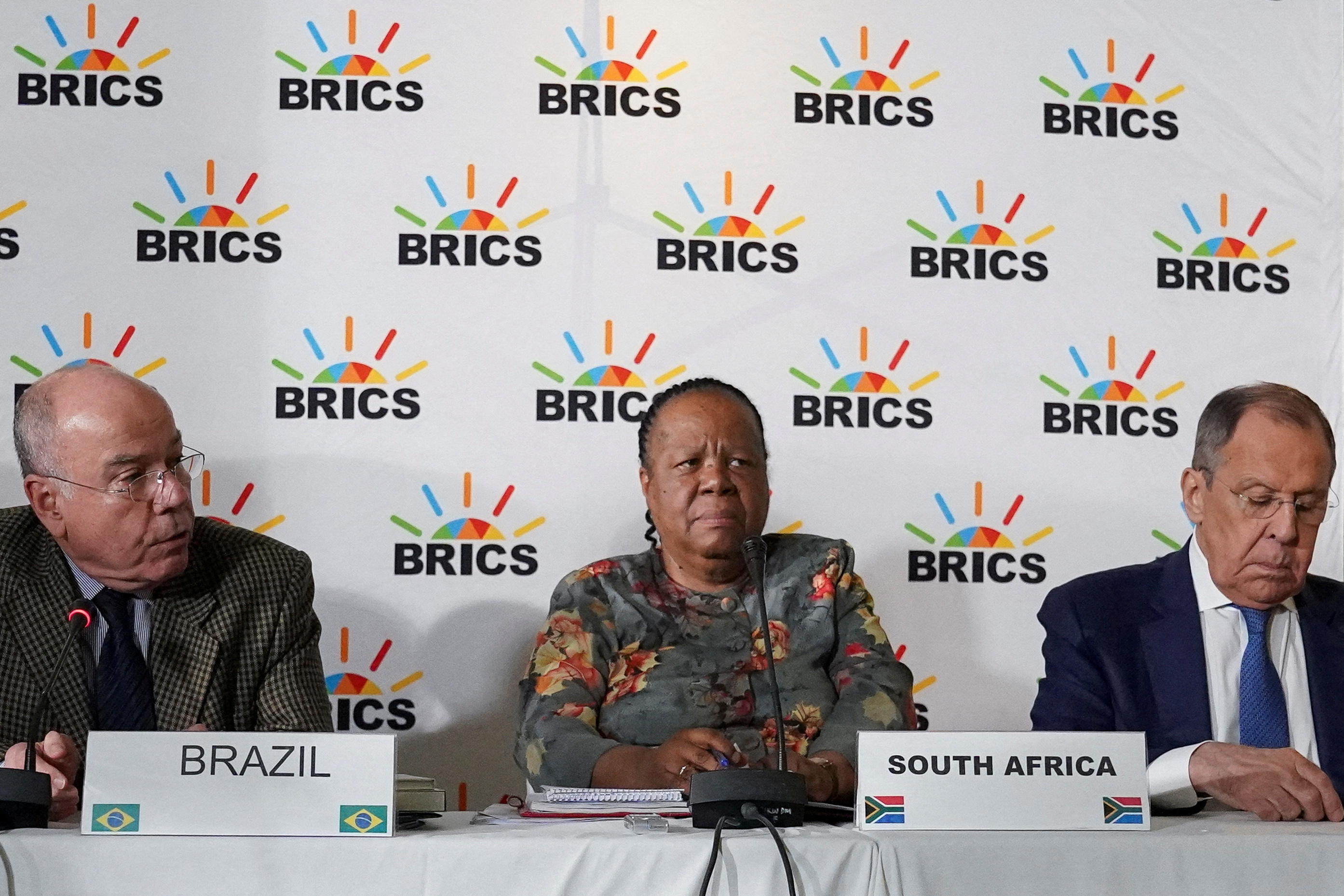
Brazil’s Foreign Minister Mauro Vieira, South Africa’s Foreign Minister Naledi Pandor and Russia’s Foreign Minister Sergei Lavrov attend a press conference as BRICS foreign ministers meet in Cape Town, South Africa, June 1, 2023. REUTERS/Nic Bothma/File Photo Acquire Licensing Rights
JOHANNESBURG, July 20 (Reuters) – More than 40 countries have expressed interested in joining the BRICS group of nations, South Africa’s top diplomat in charge of relations with the bloc said on Thursday.
Anil Sooklal and officials from the department of foreign affairs were addressing journalists in the main commercial city of Johannesburg, a day after South Africa confirmed Russia’s Vladamir Putin would not attend the BRICS summit due to take place on Aug. 22-24.
The question of how far and fast to expand the club – centred around Brazil, Russia, India, China and South Africa – is top of the agenda at the summit of nations seeking to offset to the perceived hegenomy of the U.S.-led West in global affairs.
Aside from the 22 countries that had formally asked to join, Sooklal said there was “an equal number of countries that have informally expressed interest in becoming BRICS members … (including) all the major global south countries”.
South African officials want BRICS to become a champion of the developing world, and Argentina, Iran, Saudi Arabia, the United Arab Emirates, Cuba, Democratic Republic of Congo, Comoros, Gabon, and Kazakhstan have all expressed interest.
South Africa had faced a dilemma in hosting the summit. As a member of the International Criminal Court (ICC), which issued a warrant against Putin in March, it would be obliged to arrest the Russian president if he attended for alleged war crimes by Russia during its invasion of Ukraine, charges Putin denies.
But on Wednesday the host confirmed Russian Foreign Minister Sergei Lavrov would be attending in his president’s place.
South Africa has come under fire from Western countries for what they see as an overly friendly stance towards Russia, a longstanding ally of the governing African National Congress (ANC) since it was a liberation movement fighting white minority rule. South Africa maintains it has a neutral stance on the Ukraine war, which it wants to end through negotiation.
Diplomats addressing the press on Thursday said that position had been vindicated by South Africa’s acceptance by both sides as a mediator in the conflict, in contrast to sabre-rattling by Western powers.
Russia listened to but did not ultimately accept a peace plan put forward by President Cyril Ramaphosa and other African leaders last month.
“Has condemnation, isolation brought us closer to peace? No,” Zaheer Laher, South Africa’s acting director general for global governance said. “But engagement would bring the parties closer to negotiation.”
Writing by Tim Cocks; Editing by Alex Richardson
Our Standards: The Thomson Reuters Trust Principles.


 Outlined here is a mapping of the new paradigm emerging around the BRICS nations (Brazil, Russia, China, India and South Africa), how the United States can join this revolutionary new dynamic, the intellectual and political leadership provided by Lyndon and Helga LaRouche over the last forty years to make this vision a reality, and an epistomological overview of where mankind, as a species, is headed were this new paradigm to envelop the entire planet.
Outlined here is a mapping of the new paradigm emerging around the BRICS nations (Brazil, Russia, China, India and South Africa), how the United States can join this revolutionary new dynamic, the intellectual and political leadership provided by Lyndon and Helga LaRouche over the last forty years to make this vision a reality, and an epistomological overview of where mankind, as a species, is headed were this new paradigm to envelop the entire planet.













